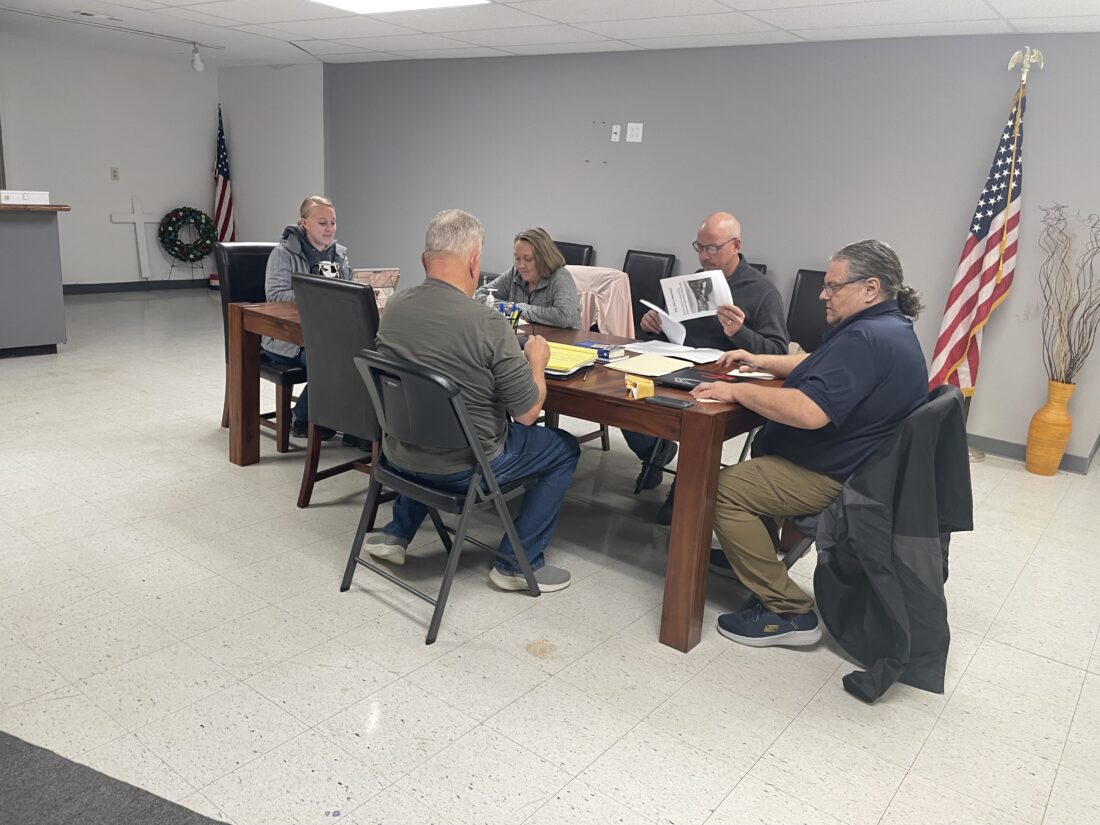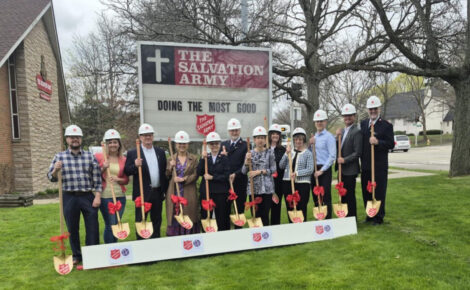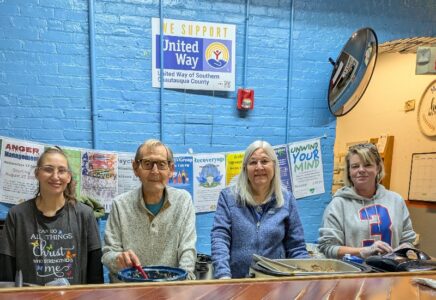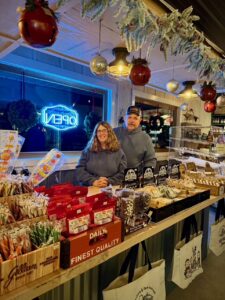Village Of Panama Puts Support Behind Federal Energy Choice Act

The village of Panama officially approved a resolution supporting the federal Energy Choice Act. P-J photo by Sara Holthouse
PANAMA — Congressman Nick Langworthy’s recently introduced Energy Choice Act at the federal level has been gaining support from local municipalities, and the village of Panama has added its name to that list.
Langworthy’s act comes as a deadline for a state mandate approaches saying all new houses built in 2026 must be all electric and not use natural gas, specifically smaller builds, with the same applying for larger builds by 2029. The act is set to allow municipalities choice when it comes to where they get their energy.
During Panama’s October meeting, County Legislator Travis Heiser was in attendance to tell the village about what is happening at the county level in regards to the Energy Choice Act and to discuss it with the village.
“This will be a federal law that is working its way through that prohibits states from banning an energy services connection, reconnection, modification, insulation, or expansion based on the type or source of energy to be delivered,” Heiser said.
At the county level Heiser said there was an emergency resolution added to their regular agenda of support for the bill. Three people voted no but Heiser said 15 others voted yes and letters of support have been sent to the correct offices.
“Who knows how much they listen to us, but we made a stand on that one that we don’t think it’s a good idea to go with the state’s plan and support what the federal one is looking to do to free people up to make their own decisions,” Heiser said.
The proposed federal law is getting a lot of traction in rural areas and is gaining support, Heiser added, as many are agreeing that it is not something feasible for those areas. Mayor William Schneider said he personally believes it is not feasible for Panama as well.
“I do not believe personally and as a scientist that electrical energy is sustainable and is not practical because of our weather conditions,” Schneider said.
Additionally, Schneider said there is a concern about the push of solar and wind energy and how that is hurting viable agricultural space and hurting wildlife habitats, while Niagara Falls remains as a huge energy source, which Schneider said is not talked about because that energy gets sold off. He said especially with the weather and having a time of the year where there is a decreased amount of solar energy in the area thanks to the Earth’s tilt, these types of projects and electrical energy is not something he feels makes sense or is practical for the Panama area.
Later in the meeting, Schneider returned to the topic so the village could officially vote on a resolution in support of the Energy Choice Act.
“I really, really believe that it’s not in the interest of our rural, residential setting to impose that strict of a regulation on what we can use for energy sources,” Schneider said. “Let me just throw out a fact to you that nationwide natural gas consumption is less than four percent of all the worldwide greenhouse gas emissions, and we’ve come to a point now where the greenhouse gas emissions, yes they are there and they have caused some issues but people are confusing and using the science to say what they want to say.”
Another issue Schneider brought up is the very touchy electrical infrastructure in the Panama area, facing specific issues in the winter with heavy snow and ice and the electricity going down, though he acknowledged that it is getting better and National Grid is doing its best. Having National Grid have to depend solely on solar and wind power is something he said is impractical for the Panama area.
“They keep saying in the future we’re going to have all of these new renewable energy sources, but there’s no science backing any of these things on the horizon,” Schneider said. “So, it’s like empty promises and I fear for everybody’s budgets because she’s also going to impose a cap and invest tax. So those of us who still have natural gas, propane, and use gasoline in our cars, diesel in our other vehicles, they’re going to throw on these extra taxes for already overtaxed energy sources.”
Electric cars are also something Schneider noted to be impractical for the area, specifically due to the effect of the cold weather on them and the batteries running down faster and the lack of infrastructure. In a big city setting, he said he can understand these things, but in this area he remains concerned about agricultural and rural settings, with much of the viable agricultural lands now being bought out for solar, rather than places in cities such as high-rises where they would also work.
“I don’t think people are thinking about the consequences and the future is very uncertain,” Schneider said. “I don’t think they provided enough answers, but they’re still pushing through with this law.”
Schneider also noted that propane and natural gas have actually been proven to be some of the cleanest energy, and that there is no free clean energy as waste products are constantly produced by these materials, ending up in dumps because they cannot be recycled, with some materials including electric vehicle batteries ending up as hazardous waste.
“I’m all for clean energy but as my seventh grade science teacher said, ‘you know, in 30 years there’s not going to be any fossil fuels left’,” Schneider said. “We’re way past 30 years since I’ve been in seventh grade and fossil fuels are still very abundant. We’ve learned how to manage them properly; we’ve learned how to use them efficiently and are producing less damage and harmful emissions to the environment.”
The Panama village board approved a resolution in support of the Energy Choice Act, and letters of support will be sent to the appropriate people and offices at the federal and state levels.



